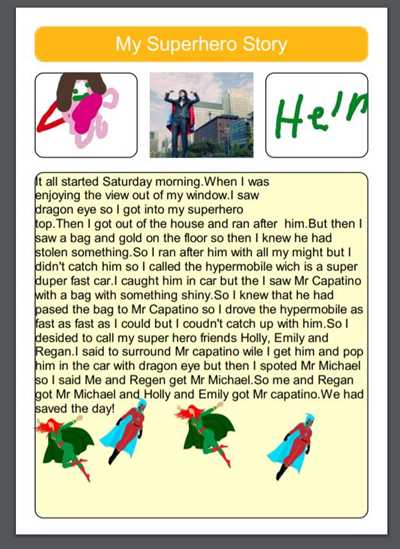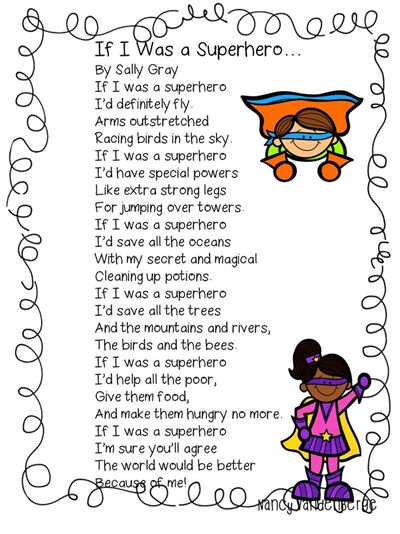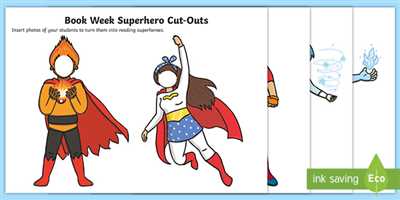
Superheroes have become a major part of popular culture, capturing the imaginations of people of all ages. Whether you’re a fan of Superman, Iron Man, or Captain America, there’s something about these characters that gives us a strong sense of connection. As a writer, you have the advantage of creating your own superheros and crafting their stories. But how do you get started?
When writing superhero stories, one of the most important things to think about is the motivation behind your characters. What drives them to become heroes and fight for justice? This is a fundamental aspect of any superhero story and can give your characters a relatable and significant reason to use their powers for good. For example, Batman fights crime in Gotham City to avenge the loss of his parents, while Spider-Man battles villains to protect his loved ones and the city he belongs to.
Another key step in creating superhero stories is to give your characters a secret identity. Having a dual life allows your characters to have a “normal” side and a super-powered side. This duality makes them more human and relatable to readers, as they struggle to balance their everyday lives with their superhero duties. For instance, Peter Parker is just an ordinary high school student by day, but transforms into Spider-Man when he’s needed to save the day.
When writing superhero stories, it’s also important to think about the threats and villains your heroes will face. Every hero needs a strong antagonist to battle against. Think about their powers, weaknesses, and motivations. A good example is Lex Luthor, who stands as a powerful enemy to Superman, using his intelligence and wealth to try and bring down the Man of Steel. The more interesting and complex your villains are, the more engaging the story becomes.
One spec, even although superheroes often have superpowers, it’s important to remember that they’re still human. They have their own flaws and strengths, and these should be explored in your story. By making your characters relatable, the audience can connect with them on a deeper level. For instance, Tony Stark’s struggles with his own personal demons make him a more complex and interesting character. Likewise, when the X-Men battle against discrimination and prejudice, it adds a thematic depth to their stories.
Lastly, it’s crucial to think about the originality of your superhero stories. With so many heroes already out there, it can be challenging to come up with something new and fresh. Take inspiration from various sources, such as mythology, history, and even the world around you. Don’t be afraid to put your own spin on things and create unique characters that will stand out in a crowded market.
In conclusion, writing superhero stories can be both exciting and challenging. By following these five steps – establishing a strong motivation, creating secret identities, developing formidable villains, exploring the human side of your heroes, and striving for originality – you can create captivating and memorable tales that will leave readers wanting more.
How to Write a Superhero Story

Writing a superhero series gives writers the opportunity to create exciting and engaging stories that captivate readers. But before you start writing, there are a few steps you should take to ensure your superhero story stands out.
First, consider what kind of superhero you want to create. Is it a traditional superhero like Captain America or Superman, or do you want to come up with something completely original? Think about what makes your superhero unique and how they will fit into the world you create.
When writing a superhero story, it’s important to have a secret identity for your hero. This adds intrigue and suspense to the plot. Likewise, consider giving your superhero a significant reason to fight – whether it’s to save their city, protect their loved ones, or serve justice.
One thing that sets superhero stories apart from other genres is the thematic depth they can explore. Superheroes often represent something larger than themselves, whether it’s an immigrant experience, a philosophical idea, or a commentary on society. Think about what message or theme you want to communicate through your hero.
In terms of characters, it’s important to have a diverse cast that readers can connect with. Superheroes come from all walks of life, and having characters from different backgrounds and perspectives can make your story more relatable and interesting.
When it comes to writing a superhero story, inspiration can come from anywhere. Whether you draw from personal experiences, other novels, graphic novels, or even Disney movies, find what motivates you and incorporate it into your own work.
Be aware that writing a superhero story without falling into cliches can be challenging. While it’s important to make your story unique, it’s also important to respect the genre’s conventions and expectations. For example, giving your hero a weakness or flaw that they must overcome can add depth to their character.
Finally, remember that every superhero story needs a good villain. The antagonist should be just as well-developed and interesting as the hero. Give them a compelling motivation for their actions, and explore their backstory and goals to create a well-rounded character.
In summary, writing a superhero story involves steps such as creating original and relatable characters, exploring thematic depth, and finding inspiration without losing sight of the genre’s conventions. By following these fundamental steps, you can create an engaging and memorable superhero story that will captivate readers.
Five steps to writing your own superhero
When it comes to writing superhero stories, the possibilities are endless. You have the power to create your own unique superhero character and bring them to life through your writing. Here are five steps to help you get started on your superhero journey:
Step 1: Think about the fight
What is the primary motivation for your superhero? What do they stand for and what are they fighting against? This will give your character depth and purpose.
Step 2: Connect with relatable characters
One of the major reasons people love superheroes is because they can connect with them on a personal level. Develop characters like Peter Parker (Spider-Man) or Bruce Wayne (Batman) who have their own personal struggles and flaws.
Step 3: Give them a unique superpower
Every superhero needs a special ability that sets them apart from others. Whether it’s the ability to fly like Superman or the mutant powers of the X-Men, make your superhero different and unique.
Step 4: Create a strong thematic reason
What is the underlying theme of your superhero story? Is it about courage, justice, or the triumph of good over evil? Establish a clear and strong thematic reason for your superhero’s existence.
Step 5: Make them relatable and relatable to you
One of the most important aspects of a superhero is their relatability. While they may have extraordinary abilities, they should still face challenges and struggles that readers can empathize with. Likewise, draw inspiration from your own experiences and make them a part of your superhero’s journey.
By following these five steps, you can create your very own unique superhero that stands out in the crowded market of superheros. Remember, the key is to be original and give your superhero a reason to exist in your world. Now, get writing and bring your superhero city to life!
How to Start Writing a Superhero Story and Where to Get Inspiration

When it comes to writing superhero stories, the first thing you need to do is come up with your own unique idea. Superheroes have been a major part of our popular culture for decades, so it’s essential to create characters who stand out and don’t feel like copies of existing heroes.
One way to start is by thinking about what kind of heroes you want to create. Do you want them to have superpowers, or would you prefer them to be normal people who become heroes without any special abilities? For example, Spider-Man’s Peter Parker is just an ordinary guy who happens to gain extraordinary powers.
When thinking about your superhero’s powers, consider how they might connect to the theme of your story. Superheroes can serve as metaphors for different aspects of society, such as social issues or political ideas. For instance, the X-Men are mutants who represent marginalized groups and fight against discrimination.
Inspiration can come from anywhere–you just need to know where to look. Comic books and graphic novels are obvious sources, but don’t limit yourself to just those. Novels, movies, and TV series can also provide inspiration and help you think outside the box when developing your own superheroes.
One advantage of having your own superheroes is that you can give them a background story that is unique and personal. You can think about their secret origins, their reasons for fighting crime, and what kind of threats they face. For example, Batman’s Bruce Wayne witnessed his parents’ murder as a child, which became the primary motivation for him to become the Dark Knight.
When writing superhero stories, it’s not only about the action and the battles. It’s also important to explore the characters’ internal struggles and the philosophical questions they face. Superheroes often grapple with moral dilemmas and the responsibility that comes with their powers.
Before you start writing, it’s helpful to outline your story and the main events that will take place. This step will ensure that your story has a clear structure and that you’re not just making things up as you go along.
Now, where can you actually get started on writing your superhero story? The answer is simple–just sit down and start writing. The most important thing is to get your ideas out of your head and onto paper. You can always revise and refine later.
Remember, your superheroes and their stories belong to you. They may have similarities to other heroes, but they’re uniquely yours. So, don’t be afraid to think creatively and explore new ideas.
Writing superhero stories can be a lot of fun, but it’s also a serious task. Make sure you take advantage of the rich history and tradition of superheroes while also bringing something fresh and original to the table.
So, go ahead and start writing your own superhero story. The world is waiting to meet your fantastic characters and exciting adventures!
Make Superheroes Relatable
One of the major steps in writing a successful superhero story is to make the characters relatable to the readers. Superheroes are often depicted as larger-than-life figures with extraordinary abilities, but to connect with the audience, they need to have characteristics that the readers can identify with.
To start with, it is important to give each superhero a strong motivation. Whether it be fighting for justice, protecting loved ones, or seeking personal redemption, having a clear and compelling reason for becoming a superhero adds depth to the character and makes them more relatable.
Another way to make superheroes relatable is to show their flaws and vulnerabilities. No one is perfect, and the same goes for superheroes. By exploring their weaknesses and insecurities, writers can create more multidimensional characters that readers can connect with on a deeper level.
Superheroes should also have relatable relationships and dilemmas. By incorporating realistic interpersonal dynamics and moral dilemmas into the story, writers can explore the thematic and philosophical aspects of being a superhero. This not only adds depth to the story but also gives readers a chance to reflect on their own lives and values.
Taking inspiration from existing superheroes can also be a fundamental part of making characters relatable. Just as Superman’s commitment to truth and justice and Iron Man’s personal struggles have resonated with audiences, finding the unique qualities of other superheroes can help in creating relatable characters.
When writing original superheroes, it’s important to remember that every character has strengths and weaknesses. This creates a balance and prevents them from feeling overpowered or unrealistic. Having characters face challenges and work through them helps readers to connect and root for them.
Lastly, superheroes should have a sense of purpose. Whether it’s to save the city from a new threat, serve as a symbol of hope, or make a difference in the world, having a clear mission gives the character direction and motivation. This mission can be as simple as Spider-Man’s responsibility to protect the people of New York City or as grand as Batman’s quest to rid Gotham of crime.
In conclusion, relatable superheroes are essential in engaging readers and creating a successful story. By giving them motivations, flaws, relationships, and a sense of purpose, writers can connect with their audience on a deep level. Whether it’s the X-Men’s struggle to fit into society, Captain America’s fight for freedom, or Thor’s quest to prove himself worthy, relatable superheroes bring stories to life and make them resonate with readers.
Sources
When it comes to writing superhero stories, having the right inspiration and sources can be fundamental. Here are a few sources that can help you get started:
– Comics: The comic book market is filled with superhero stories that can serve as great inspiration. From Marvel’s X-Men to DC’s Batman, reading these comics can give you a deep understanding of how to write about superheros in a way that is both original and relatable.
– Movies: Superhero movies, such as those produced by Disney and Warner Bros., are another great source of inspiration. Watching these films can give you insights into how to make your own heroes and their stories strong and compelling.
– Novels: Although superhero-themed novels are not as common as comics, there are still some great examples out there. Reading books like “Superman: The Ultimate Guide to the Man of Steel” by Scott Beatty or “Spider-Man: The Ultimate Guide” by Tom DeFalco can provide you with additional inspiration and ideas.
– Real-life stories: Looking to real-life stories of heroes and people who stand up for what they believe in can also provide you with motivation and ideas for your superhero story. Whether it’s an immigrant fighting for their rights or a person battling a major threat to their city, these stories can give your superhero a sense of purpose and a relatable connection to the world.
– Philosophically significant themes: Superhero stories often touch on deeper philosophical themes. Exploring concepts like morality, power, and identity can add depth to your story and make it more thought-provoking. For example, Superman’s motivation to do good comes from his own sense of responsibility and belonging, while Batman fights to make his city a better place.
– Your own experiences: One of the most original and relatable ways to write a superhero story is to draw upon your own experiences and emotions. By incorporating elements of your own life into your characters and their journeys, you can create stories that are unique and authentic.
By using these sources and following the steps outlined in this article, you can start writing your own superhero story without having to be without inspiration!









